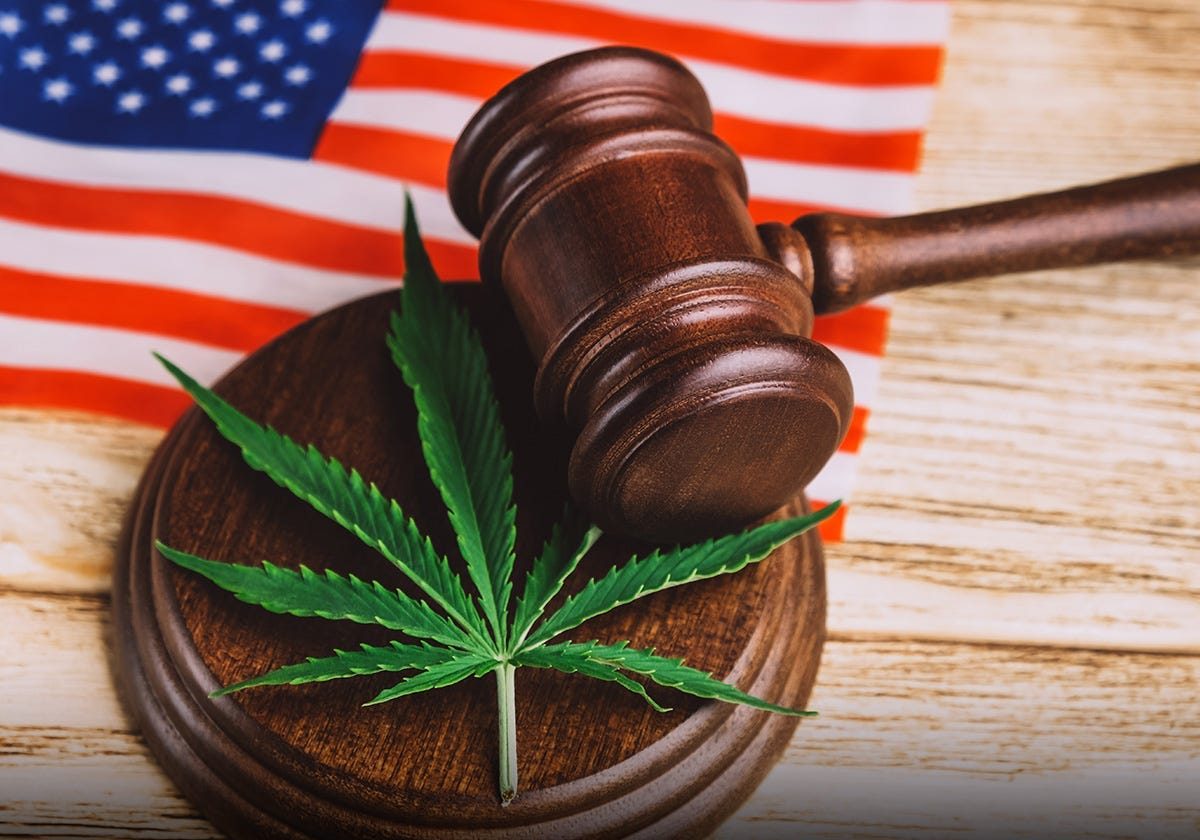In recent times, the conversation surrounding the intersection of recreational substances and professional settings has gained momentum. As attitudes shift and legal frameworks evolve, organizations are faced with a unique challenge: how to navigate the implications of this changing landscape within their teams. This phenomenon presents both opportunities and complications as employees seek to integrate their personal choices with their professional lives.
The dynamics at play in these modern venues often reflect broader societal changes. Factors such as individual rights, workplace policies, and team interactions contribute to a rich tapestry of experiences that can vary widely from one organization to another. As management approaches these topics with a sense of openness, they also confront the necessity of maintaining productivity and ensuring a harmonious environment.
Understanding the nuances of this evolving dialogue is crucial for leaders aiming to foster an inclusive and supportive atmosphere. By examining the various perspectives and interests involved, companies can better prepare themselves for the challenges and opportunities that lie ahead. This journey involves striking a balance between respect for personal choices and the commitment to uphold a productive and professional atmosphere.
The Rise of Cannabis in the Workplace
The increasing acceptance of herbal derivatives within professional environments reflects a significant shift in societal attitudes. This transformation is influenced by a combination of legal advancements, changing perceptions, and evolving workplace dynamics. As attitudes move toward normalization, organizations are grappling with the implications for their policies and practices.
Legislation has played a pivotal role in this evolution, as jurisdictions across the region have introduced progressive laws, allowing for the recreational and medicinal applications of these plants. Consequently, many sectors are now tasked with redefining their standards and expectations regarding the utilization of these substances during working hours.
Moreover, the dialogue surrounding wellness and productivity has also shifted. There is a growing recognition that individuals’ approaches to well-being can vary dramatically, prompting employers to reconsider how they address mental health and relaxation techniques. This change has led to a more inclusive environment where alternative practices are becoming mainstream.
As a result, organizations are increasingly focused on establishing clear guidelines and fostering open discussions about these practices. Adapting to this trend not only helps in maintaining a productive atmosphere but also demonstrates a commitment to understanding the diverse needs of the workforce.
In conclusion, as perceptions continue to evolve, the conversation about integrating these substances into the professional sphere is becoming more prevalent, prompting a reevaluation of workplace norms and expectations.
Understanding New York’s Cannabis Legislation
This section delves into the framework surrounding the legalization and regulation of recreational and medicinal substance within the Empire State. The laws governing this topic have undergone significant transformations, reflecting evolving public perceptions and trends. Key aspects of the regulations encompass possession limits, cultivation rights, and the establishment of licensed dispensaries, among other provisions.
The legislative measures aim to create a structured environment that balances personal freedoms with responsibilities. Consideration is given to public health, safety, and equitable access to markets while addressing past injustices related to enforcement. Furthermore, emerging guidelines are constantly adapting to ensure compliance and promote responsible practices within various sectors.
Understanding these legal stipulations is essential for both individuals and organizations as they navigate a landscape that promises to shape social dynamics and economic opportunities. Awareness of rights, obligations, and best practices can foster a more informed and conscientious community as the region progresses in this new era.
Employee Perspectives on Cannabis Use
This section delves into the varied viewpoints held by workers regarding the consumption of a certain plant substance within professional environments. It highlights the diverse opinions and feelings that individuals possess, especially as social norms shift and regulations evolve. Understanding these perspectives is crucial for navigating the implications on productivity, well-being, and workplace dynamics.
Different factors influence how individuals perceive this substance, including personal experiences, potential benefits, health concerns, and societal attitudes. By assessing these views, companies can better align their policies and practices with the expectations and needs of their staff.
| Perspective | Comments |
|---|---|
| Positive | Some individuals believe it enhances creativity and reduces stress, contributing positively to the work environment. |
| Neutral | Others maintain a neutral stance, viewing it as a personal choice that does not impact their professional responsibilities. |
| Negative | A segment of the workforce expresses concerns about potential impairments and advocates for stricter regulations. |
| Curious | Many discussions center around awareness and education regarding the effects and legalities, sparking curiosity among colleagues. |
Impact on Workplace Productivity and Safety
The integration of alternative substances into professional settings raises significant questions regarding efficiency and overall security. Companies must navigate the implications that arise when individuals engage with these substances, which can have both positive and negative consequences on job performance and the well-being of all staff members.
Effects on Productivity
The relationship between substance engagement and productivity can be multifaceted. Certain individuals may report increased creativity and focus, while others might experience decreased motivation and hindered task completion. Understanding these dynamics is crucial for organizations aiming to maintain high performance amidst a changing landscape.
Safety Considerations
Maintaining a safe working environment is paramount, especially when alternative substances are involved. The potential for impaired judgment, slower reaction times, and reduced coordination must be carefully managed. Organizations are encouraged to implement clear policies and training programs to mitigate risks associated with this new behavior.
| Factor | Positive Impact | Negative Impact |
|---|---|---|
| Creativity | Enhanced problem-solving | Possible distractions |
| Focus | Increased attention to detail | Risk of burnout |
| Safety | Improved morale | Increased accidents |
Coping with Cannabis in Company Policies
The integration of herbal substances into the environment of modern organizations raises significant questions about how best to craft frameworks that balance employee freedoms with operational integrity. As societal perceptions evolve, it becomes increasingly critical for management to navigate the implications of these alterations in attitude, ensuring that regulations both reflect contemporary values and support a productive atmosphere.
Understanding the Legal Landscape
Prior to formulating guidelines, it is essential to grasp the legal environment surrounding the matter. Jurisdictions vary in their legislation, including distinctions in permissible activities and employment rights. Organizations must familiarize themselves with state and local laws to develop comprehensive approaches that adhere to legal requirements while also fostering a supportive atmosphere for all team members.
Creating Clear Guidelines
Establishing well-defined protocols can serve as a foundation for addressing various scenarios. It is crucial for management to communicate expectations regarding acceptable behaviors and potential repercussions. Inclusivity in policy creation can lead to a better understanding across the board, promoting a sense of belonging while mitigating potential conflicts. Furthermore, regular updates and employee input can contribute to a more robust framework, adapting to changes in societal norms and legal parameters.
Future Trends in Workplace Culture
The upcoming landscape of professional environments reveals a shift towards greater inclusivity and flexibility, fostering a sense of community and collaboration. Organizations are increasingly recognizing the importance of adapting to the evolving needs of their teams, which may lead to innovative practices that prioritize well-being and employee satisfaction.
Emphasis on Mental Health
In the years ahead, mental wellness is expected to take center stage. Companies are likely to invest more in resources and initiatives that support psychological health, recognizing its impact on overall productivity and morale. Strategies may include enhanced support systems, access to counseling, and mindfulness programs.
Flexible Work Arrangements
The trend towards remote and hybrid work setups is anticipated to continue, allowing individuals to curate their optimal work environments. This flexibility could result in a more engaged workforce, as employees enjoy the balance between personal and professional responsibilities.
| Trend | Description |
|---|---|
| Mental Health Focus | Investment in resources that promote psychological well-being. |
| Remote Work | Continuation of flexible work arrangements to enhance employee satisfaction. |
| Diversity and Inclusion | Increased efforts to create a more inclusive environment for all individuals. |
| Technology Integration | Utilization of advanced tools to streamline communication and collaboration. |
Q&A: Stirring pot employee cannabis use new york
What does the article suggest about the growing acceptance of cannabis use in New York workplaces?
The article discusses the evolving landscape of workplace culture in New York, highlighting how cannabis use is becoming increasingly normalized. It explains that as more states legalize recreational and medical marijuana, companies in New York are beginning to reconsider their policies regarding cannabis. Many organizations are adopting more lenient approaches, recognizing that prohibiting cannabis use may not align with the values of a younger workforce that favors flexibility and self-care. The article points out various businesses that have implemented educational programs and harm reduction strategies rather than outright bans on cannabis use.
How are employers adapting to the legal changes surrounding cannabis use in New York?
Employers are responding to the legal changes surrounding cannabis use by updating their workplace policies to reflect the new legal reality. The article outlines several strategies that companies are employing, such as revising drug testing protocols, introducing training sessions about the effects of cannabis, and cultivating a culture of openness where employees feel comfortable discussing their cannabis use without fear of discrimination. By fostering these environments, employers aim to balance compliance with the law while maintaining a safe and productive workplace. They are also recognizing the importance of focusing on performance and output rather than attempting to police personal choices outside of work.
What are some potential benefits of allowing cannabis use among employees, according to the article?
The article highlights several potential benefits of allowing cannabis use among employees. Firstly, it suggests that allowing cannabis use can contribute to lower stress levels and enhanced mental health, which may lead to increased productivity and job satisfaction. Secondly, it points out that workplace flexibility around cannabis can help attract and retain talent, particularly in industries where work-life balance is valued. Additionally, the article mentions that fostering an open dialogue about cannabis can enhance employee-employer relationships and promote a culture of trust and understanding, ultimately contributing to a more positive work environment.
What challenges do companies face when implementing cannabis-friendly policies?
Companies face a number of challenges when implementing cannabis-friendly policies, as noted in the article. One significant issue is the need to navigate the complex legal landscape surrounding cannabis use, which can vary not only by state but also by locality. Employers must ensure they are compliant with state laws while also managing the expectations of their workforce. Another challenge is addressing safety concerns, especially in industries that involve operating heavy machinery or working in safety-sensitive positions. Additionally, companies are tasked with educating staff about responsible use and the potential impacts of cannabis on work performance, which can be a sensitive subject. Balancing flexibility and safety is crucial, and finding this equilibrium presents a continuous challenge for many organizations.
How does the article address employee rights regarding cannabis use in the workplace?
The article emphasizes the importance of employee rights in the context of cannabis use, detailing how New York’s legal framework protects workers from discrimination based on their cannabis use outside of work hours. It discusses how employees have the right to make personal choices regarding cannabis consumption without facing repercussions in their job performance evaluations. The article also highlights that employers must tread carefully to ensure they respect these rights while maintaining a productive work environment. It calls for employers to develop clear, fair policies that protect both employee rights and company interests, fostering an atmosphere where employees feel valued and free to express their personal choices without fear.
How has the legalization of cannabis in New York impacted workplace culture?
The legalization of cannabis in New York has significantly transformed workplace culture by fostering a more open dialogue about cannabis use among employees. Many companies are re-evaluating their drug policies, and there’s a growing acceptance of cannabis as a part of wellness programs. In some workplaces, employees feel more comfortable discussing their cannabis use without fear of repercussion, which can lead to a more inclusive and understanding environment. However, this shift also raises questions about productivity, safety, and the balance between personal choice and professional responsibilities. Employers are now navigating how to implement policy changes while ensuring a conducive work atmosphere and addressing any legal concerns associated with cannabis use.
What recent changes to New York law have affected the use of cannabis in the workplace?
In 2021, New York state implemented an adult-use cannabis program, allowing for the recreational use of cannabis. The law mediates the competing interests of employers and employees by providing protections under New York Labor Law 201-d, which prohibits discrimination against employees based on their legal use of cannabis. However, employers are still allowed to maintain a drug-free workplace and may take action if cannabis use creates a material conflict of interest related to the employer’s trade secrets or affects employee performance.
How does New York law address the protection of employees who use medical cannabis?
New York law provides protections to employees engaged in the use of medical cannabis by amending New York Labor Law 201-d. The statute ensures that employees who use medical marijuana for legitimate medical reasons are not discriminated against in employment decisions, such as hiring, promotion, or compensation. However, this protection does not extend to scenarios where the use of cannabis creates a material conflict of interest or hinders the employee’s ability to perform their job duties properly.
What implications does the expansion of the adult-use cannabis program have for employers in New York?
The expansion of the adult-use cannabis program in New York has significant implications for employers. While the law allows recreational marijuana use, it also creates challenges for maintaining a drug-free workplace. Employers must navigate the limitations imposed by New York Labor Law 201-d, which protects employees from being penalized for legal cannabis use. This means employers need to develop clear policies regarding cannabis use, ensuring compliance with the law while safeguarding their proprietary interests and maintaining workplace safety.
How does the taxation act impact the cannabis industry in New York?
The Taxation Act, which regulates the cannabis industry in New York, imposes taxes on the sale of adult-use cannabis. This act is intended to generate revenue for the state while also funding public education and health programs. Retailers operating in the cannabis industry must comply with state licensing requirements and pay taxes on their sales, which can affect pricing and market competition. The revenue generated can also help expand access to the adult-use cannabis program, fostering growth in the industry.
What are the considerations for employers regarding employees who work on vessels where private use of cannabis may occur?
Employers must consider the implications of New York law concerning employees engaged with certain water vessels where private use of cannabis would violate a provision of the law. This situation creates a unique challenge for employers, as they must balance the rights of employees to use cannabis legally while ensuring compliance with safety regulations and the proper discharge of official duties. Employers may need to establish guidelines regarding cannabis use on such vessels to protect their business interests while adhering to legal requirements.






